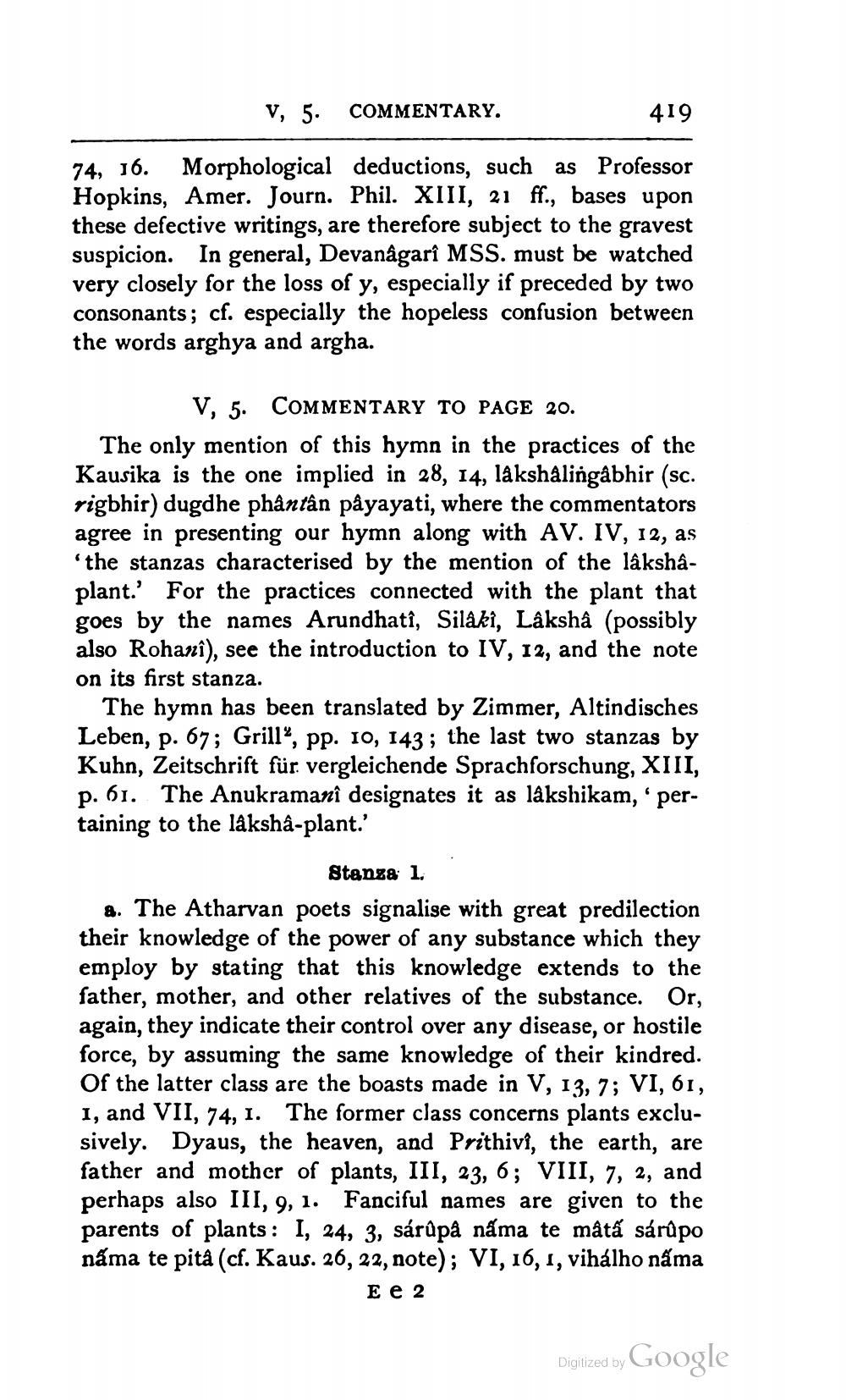________________
V, 5.
COMMENTARY.
419
74, 16. Morphological deductions, such as Professor Hopkins, Amer. Journ. Phil. XIII, 21 ff., bases upon these defective writings, are therefore subject to the gravest suspicion. In general, Devanagarî MSS. must be watched very closely for the loss of y, especially if preceded by two consonants; cf. especially the hopeless confusion between the words arghya and argha.
V, 5. COMMENTARY TO PAGE 20. The only mention of this hymn in the practices of the Kausika is the one implied in 28, 14, läkshalingåbhir (sc. rigbhir) dugdhe phântân påyayati, where the commentators agree in presenting our hymn along with AV. IV, 12, as 'the stanzas characterised by the mention of the lâkshâplant.' For the practices connected with the plant that goes by the names Arundhatî, Silaki, Laksha (possibly also Rohani), see the introduction to IV, 12, and the note on its first stanza.
The hymn has been translated by Zimmer, Altindisches Leben, p. 67; Grill, pp. 10, 143 ; the last two stanzas by Kuhn, Zeitschrift für vergleichende Sprachforschung, XIII, p. 61. The Anukramanî designates it as läkshikam, 'pertaining to the lákshâ-plant.'
Stanza 1. a. The Atharvan poets signalise with great predilection their knowledge of the power of any substance which they employ by stating that this knowledge extends to the father, mother, and other relatives of the substance. Or, again, they indicate their control over any disease, or hostile force, by assuming the same knowledge of their kindred. Of the latter class are the boasts made in V, 13, 7; VI, 61, 1, and VII, 74, 1. The former class concerns plants exclusively. Dyaus, the heaven, and Prithivi, the earth, are father and mother of plants, III, 23, 6; VIII, 7, 2, and perhaps also III, 9, 1. Fanciful names are given to the parents of plants: I, 24, 3, sárûpå náma te mâtá sárûpo náma te pità (cf. Kaus. 26, 22, note); VI, 16, 1, vihálho náma
Ee 2
Digitized by Google




